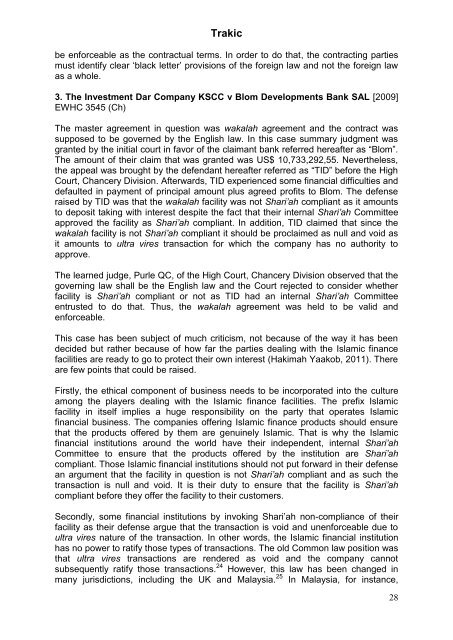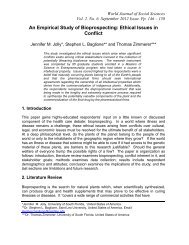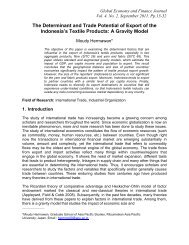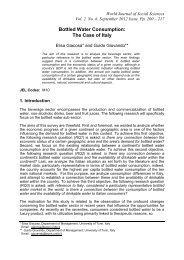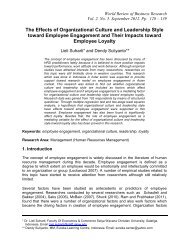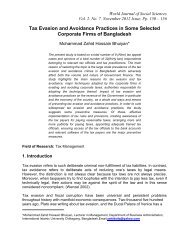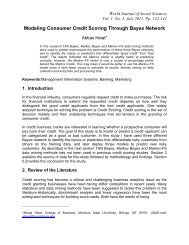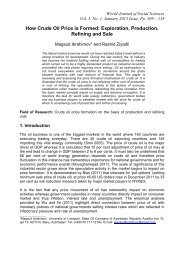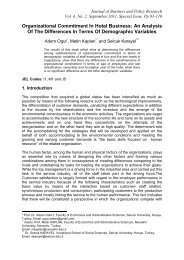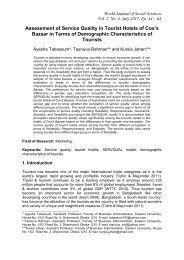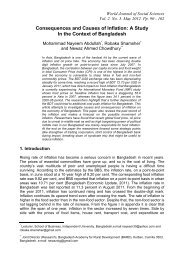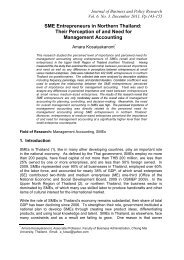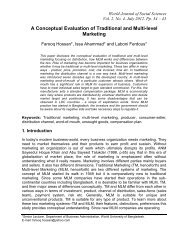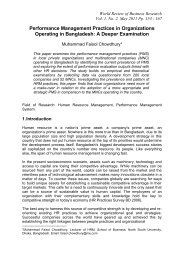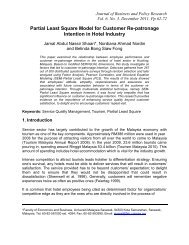Europe's Approach to Islamic Banking: A Way Forward - Wbiaus.org
Europe's Approach to Islamic Banking: A Way Forward - Wbiaus.org
Europe's Approach to Islamic Banking: A Way Forward - Wbiaus.org
You also want an ePaper? Increase the reach of your titles
YUMPU automatically turns print PDFs into web optimized ePapers that Google loves.
Trakicbe enforceable as the contractual terms. In order <strong>to</strong> do that, the contracting partiesmust identify clear ‘black letter’ provisions of the foreign law and not the foreign lawas a whole.3. The Investment Dar Company KSCC v Blom Developments Bank SAL [2009]EWHC 3545 (Ch)The master agreement in question was wakalah agreement and the contract wassupposed <strong>to</strong> be governed by the English law. In this case summary judgment wasgranted by the initial court in favor of the claimant bank referred hereafter as “Blom”.The amount of their claim that was granted was US$ 10,733,292,55. Nevertheless,the appeal was brought by the defendant hereafter referred as “TID” before the HighCourt, Chancery Division. Afterwards, TID experienced some financial difficulties anddefaulted in payment of principal amount plus agreed profits <strong>to</strong> Blom. The defenseraised by TID was that the wakalah facility was not Shari’ah compliant as it amounts<strong>to</strong> deposit taking with interest despite the fact that their internal Shari’ah Committeeapproved the facility as Shari’ah compliant. In addition, TID claimed that since thewakalah facility is not Shari’ah compliant it should be proclaimed as null and void asit amounts <strong>to</strong> ultra vires transaction for which the company has no authority <strong>to</strong>approve.The learned judge, Purle QC, of the High Court, Chancery Division observed that thegoverning law shall be the English law and the Court rejected <strong>to</strong> consider whetherfacility is Shari’ah compliant or not as TID had an internal Shari’ah Committeeentrusted <strong>to</strong> do that. Thus, the wakalah agreement was held <strong>to</strong> be valid andenforceable.This case has been subject of much criticism, not because of the way it has beendecided but rather because of how far the parties dealing with the <strong>Islamic</strong> financefacilities are ready <strong>to</strong> go <strong>to</strong> protect their own interest (Hakimah Yaakob, 2011). Thereare few points that could be raised.Firstly, the ethical component of business needs <strong>to</strong> be incorporated in<strong>to</strong> the cultureamong the players dealing with the <strong>Islamic</strong> finance facilities. The prefix <strong>Islamic</strong>facility in itself implies a huge responsibility on the party that operates <strong>Islamic</strong>financial business. The companies offering <strong>Islamic</strong> finance products should ensurethat the products offered by them are genuinely <strong>Islamic</strong>. That is why the <strong>Islamic</strong>financial institutions around the world have their independent, internal Shari’ahCommittee <strong>to</strong> ensure that the products offered by the institution are Shari’ahcompliant. Those <strong>Islamic</strong> financial institutions should not put forward in their defensean argument that the facility in question is not Shari’ah compliant and as such thetransaction is null and void. It is their duty <strong>to</strong> ensure that the facility is Shari’ahcompliant before they offer the facility <strong>to</strong> their cus<strong>to</strong>mers.Secondly, some financial institutions by invoking Shari’ah non-compliance of theirfacility as their defense argue that the transaction is void and unenforceable due <strong>to</strong>ultra vires nature of the transaction. In other words, the <strong>Islamic</strong> financial institutionhas no power <strong>to</strong> ratify those types of transactions. The old Common law position wasthat ultra vires transactions are rendered as void and the company cannotsubsequently ratify those transactions. 24 However, this law has been changed inmany jurisdictions, including the UK and Malaysia. 25 In Malaysia, for instance,28


